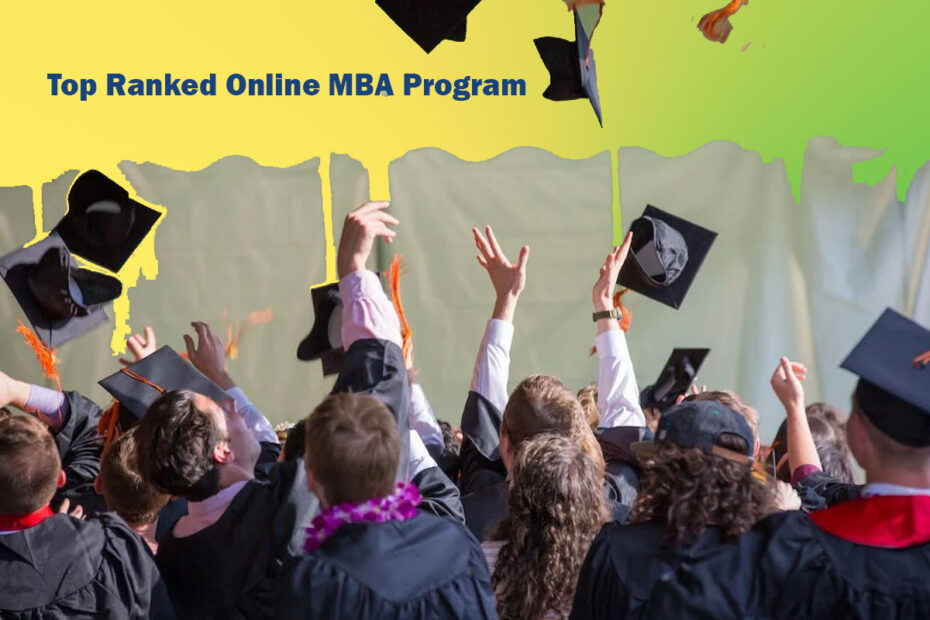In today’s highly competitive business world, obtaining a Master of Business Administration (MBA) degree has become increasingly important for career advancement and professional growth. With the advent of technology, online MBA programs have gained significant popularity, providing flexibility and convenience to working professionals. However, it’s essential to understand the difference between a traditional MBA and an Executive MBA (EMBA) program to make an informed decision about which option best suits your needs and goals.
Top Ranked Online MBA Program: A Gateway to Success
Obtaining a top-ranked online MBA program can be a game-changer for your career. With the right program, you can enhance your leadership skills, gain a comprehensive understanding of business strategies, and expand your network with like-minded professionals. A top-ranked program ensures that you receive a high-quality education and access to industry-leading faculty.
Difference Between MBA and EMBA
Both MBA and EMBA programs provide valuable business education, but they cater to different types of professionals. Understanding the key differences between the two can help you choose the path that aligns with your aspirations.
MBA: Building a Strong Foundation
An MBA program is designed for early to mid-career professionals seeking to enhance their knowledge and skills in various areas of business administration. It offers a broad curriculum covering subjects such as finance, marketing, operations, and human resources. An MBA is suitable for individuals looking to pivot their career, acquire new skills, or gain a deeper understanding of business concepts.
EMBA: Accelerating Your Executive Journey
On the other hand, an EMBA program is tailored for experienced professionals in leadership positions or with significant work experience. It focuses on honing executive-level skills and strategic decision-making abilities. EMBA candidates often balance work responsibilities alongside their studies, and the program is designed to accommodate their busy schedules. It provides a platform for senior executives to enhance their leadership competencies and broaden their perspectives.
Curriculum and Course Structure
While both MBA and EMBA programs cover similar business fundamentals, there are differences in the curriculum and course structure. MBA programs typically offer a broader range of elective courses, allowing students to customize their learning experience based on their interests. EMBA programs, on the other hand, place a stronger emphasis on leadership and executive-level coursework.
Program Duration
The duration of an MBA program is typically two years if pursued full-time. Part-time and online MBA programs offer more flexibility, allowing students to complete the degree at their own pace. In contrast, EMBA programs are designed to accommodate working professionals and are often completed within 18 months to two years, with classes conducted on weekends or in intensive modules.
Admission Criteria
Admission criteria for MBA and EMBA programs can vary. MBA programs often consider a candidate’s undergraduate academic performance, work experience, recommendation letters, and standardized test scores such as the GMAT or GRE. EMBA programs, on the other hand, place a stronger emphasis on work experience and leadership potential. They may require a minimum number of years of managerial experience, recommendation letters from employers, and sometimes waive the GMAT/GRE requirement.
Frequently Asked Questions (FAQs)
Q1: What are the benefits of pursuing an online MBA program?
Online MBA programs offer several benefits, including flexibility, convenience, and the ability to continue working while studying. They provide access to a global network of professionals and offer specialized tracks and concentrations to align with career goals.
Q2: Will an online MBA hold the same value as a traditional on-campus MBA?
Yes, reputable online MBA programs hold the same value as their on-campus counterparts. It’s important to choose an accredited program from a recognized institution to ensure the degree’s credibility.
Q3: Can I specialize in a specific area within an MBA program?
Yes, many MBA programs offer specializations or concentrations in areas such as finance, marketing, entrepreneurship, and healthcare management. Specializing can provide a competitive edge in the job market.
Q4: Is work experience required for an EMBA program?
Yes, EMBA programs typically require a minimum number of years of work experience, often ranging from 5 to 10 years. The program leverages the participants’ professional experience to foster peer learning and real-world application of concepts.
Q5: Can I pursue an EMBA without prior managerial experience?
While most EMBA programs prefer candidates with managerial experience, some programs may consider applicants with exceptional leadership potential and a strong professional background.
Q6: How does an EMBA benefit experienced professionals?
An EMBA program offers seasoned professionals an opportunity to refine their leadership skills, expand their business network, gain exposure to global markets, and accelerate their career growth by leveraging their existing knowledge and experience.
Conclusion
Choosing between a top-ranked online MBA program and an EMBA requires careful consideration of your career goals, level of experience, and preferred learning format. An MBA program caters to individuals seeking a comprehensive business education and the opportunity to pivot their careers, while an EMBA program is designed for experienced professionals looking to enhance their leadership capabilities. Regardless of your choice, both options can provide the knowledge and skills necessary to excel in the dynamic and ever-evolving business landscape.
